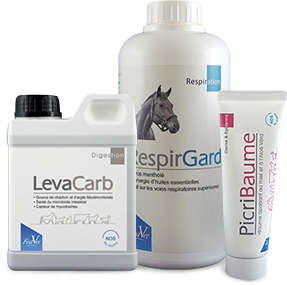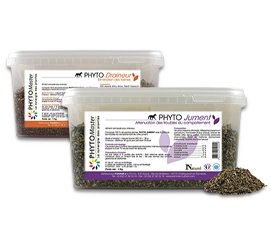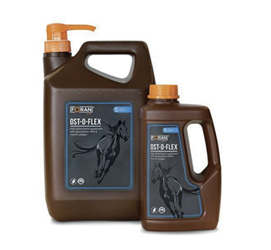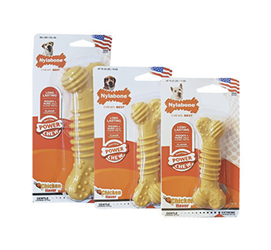Feed Supplements for All
HORSEMASTER is a French brand developed by POMMIER NUTRITION. Our products are developed and mainly manufactured at our site in Châteauneuf en Thymerais, and come with a guarantee of quality and reliability covering all stages from the raw materials to the finished product. HORSEMASTER offers a very comprehensive range of feed supplements suitable for all types of horse from the happy hacker to the competition horse.
HORSE MASTER PRODUCTS →
The Go-to Product for Veterinarians
FEDVET products by POMMIER NUTRITION, developed and mainly manufactured at our site in Châteauneuf en Thymerais, are exclusively reserved for our veterinary customer base. FEDVET offers a range of feed supplements for horses, care products for all animal species and equipment suitable for the needs of practising veterinary surgeons.
Nature at the Service of Well-being
Using its considerable experience in equine herbal medicine, POMMIER NUTRITION has developed the PHYTOMASTER range to offer an affordable and beneficial natural alternative to promote equine performance and well-being. PHYTOMASTER offers a selection of blends of carefully chosen dried herbs, to address the specific needs of your horse.
The Experience of a Leading US Company
For more than 70 years, FARNAM has been a leading brand in the American market for care products and supplementary feeds for horses. FARNAM supplies world-class products including RED CELL and TRI TEC, and has built a solid reputation among horses, owners, breeders and trainers. POMMIER NUTRITION has been the European distributor for FARNAM products for the last 20 years.
The Best Horse-care Products from Ireland
FORAN, an Irish brand founded in 1974, is now a market leader in the English-speaking world for feed supplements and care products for horses. It offers a wide range of 60 products designed by a team of experts (veterinarians, chemists, equine nutritionists and riders) to optimise the health and improve the performance of horses. For almost 20 years now, POMMIER NUTRITION has distributed FORAN throughout France and in the Benelux countries.
The Best Horse Chew Toys in the World
__Depuis 1955, Nylabone fabrique les meilleurs jouets à mâcher au monde, des produits à mâcher comestibles durables et des solutions dentaires pour les chiens de tous âges, races, formes et tailles.Nylabone fabrique une grande variété de solutions à mâcher dans les saveurs, les formes, les tailles et les textures pour chaque type de chien et force de mastication. Pour toutes les raisons de mâcher, il y a un Nylabone! Les jouets à mâcher, les friandises comestibles et les produits dentaires innovants recommandés par les vétérinaires favorisent une bonne hygiène dentaire canine, occupent et divertissent, découragent la mastication destructrice, réduisent le stress et renforcent le lien entre les animaux de compagnie et leur maître. Pour faire simple, Nylabone Chews Best!















